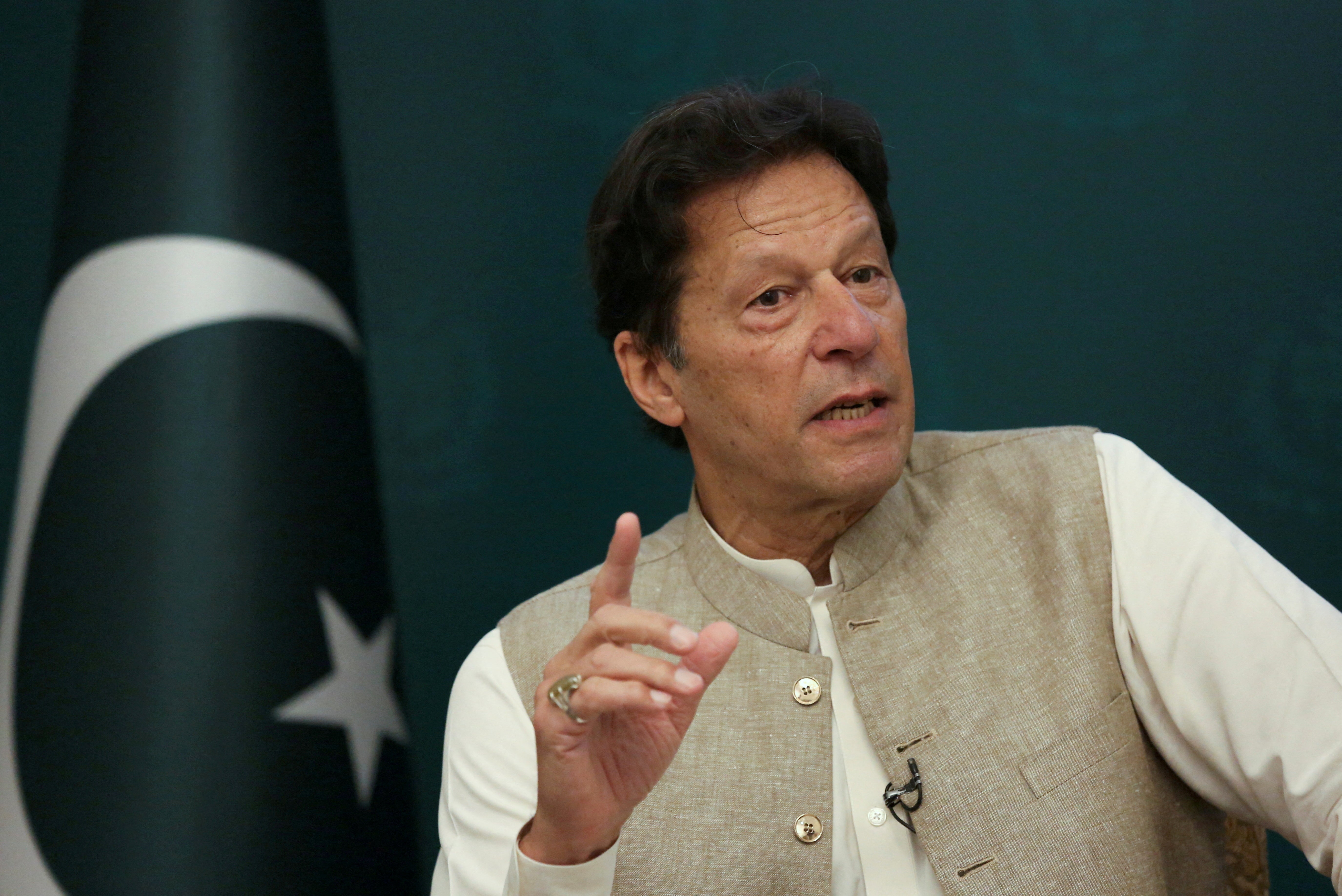Pakistani PM Imran Khan berates the west – while enjoying its generosity
If our many years spent cultivating and helping the developing world means anything, now is the time for it to bear fruit, writes Salma Shah


At the UN General Assembly this week, the Pakistani prime minister, Imran Khan, slammed western diplomats for pressuring countries to condemn Putin’s invasion. With the UAE, China and India, Pakistan abstained from the vote on Russian action and berated those who criticised the move, saying: “What do you think of us? Are we your slaves... that whatever you say, we will do?”
Pakistan might come to regret its ostentatious positioning. While pleading neutrality, it is simultaneously airing old grievances about its suffering because of its support for Nato in Afghanistan. They risk overplaying their hand against nations that spend huge amounts on aid programmes to sustain economic stability, among other things, lifting people out of grinding poverty through millions of pounds of investment.
In times of crisis, western powers should be more muscular about the political pressure they can apply to those who enjoy the generosity of other nations but fail to acknowledge the quid pro quo. They also have an obligation to us. The UK and US, until recently, occupied the top two spots for bilateral aid support to Pakistan.
Of course, primarily, aid money is there to help. Human suffering should not be tolerated by richer countries but it is also distributed to serve our own security interests in an increasingly interdependent world. This situation is no different.
If our many years spent cultivating and helping the developing world means anything, now is the time for it to bear fruit. Imran Khan was right to point out the suffering endured by ordinary Pakistanis – they are victims of terror in larger numbers than us. He was also fair in asking whether we had applied the same test to India, but we can’t fall into the trap of believing that we should not apply pressure to nations to get them onside.
Putin wouldn’t think twice before extracting, at a high price, assurances of support from weaker nations. Yet western nations are dismissed merely for expressing disappointment in a position.
We are subjected to this hectoring on our perceived misdemeanours because we have made mistakes. The western retreat from the world stage over the last two decades has been unprecedented. The US in particular is no longer willing to take on the role of the world’s policeman, and this began in earnest after the failure of the Iraq war.
To keep up to speed with all the latest opinions and comment, sign up to our free weekly Voices Dispatches newsletter by clicking here
This retirement has coincided with a populist shift in our politics to be more inward-looking. But there is an important role for us to play now, and we must be serious by using the tools we have at our disposal.
Alongside the collapse in western liberal dominance, and amid all the soul searching about the disappearance of the old world order, Khan’s posturing signifies a geopolitical shift, almost Cold War-like. Countries are dividing in an increasingly us vs them scenario.
Former No 10 director of communications Alastair Campbell has neatly described the split as dictatorships vs democracies, replacing the old capitalist vs communist. Not every country fits the bill of a dictatorship, but that strongman, iconoclastic theme is prevalent on the opposing side.
We talk of democratic values and the importance of upholding them, we bang on about our “soft power” and how to sell that British-brand identity abroad because it resonates, but all of that is meaningless if we don’t back it up with real, direct action when it matters. That is true of sanctions, it’s true of military aid and it’s certainly true of our cold hard cash. Our position is unsustainable. If we really believe in our hard won freedom, we should put our money where our mouth is.



Join our commenting forum
Join thought-provoking conversations, follow other Independent readers and see their replies
Comments